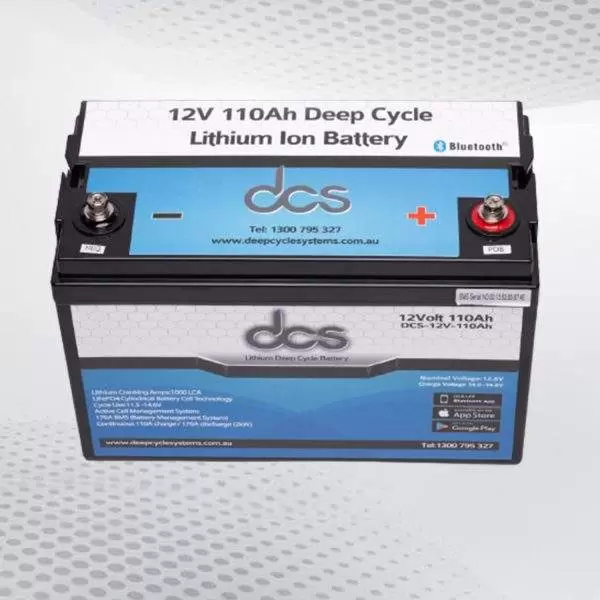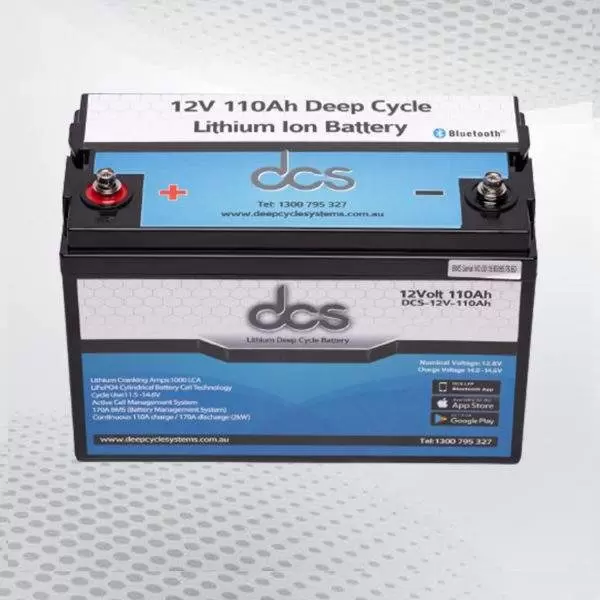Lithium-ion batteries are the most popular type of battery used in electric vehicles. 12v 100ah Lithium Battery will be found in everything from cell phones to cars, but they are currently known as one of the best ways to store power for long periods. However, even though lithium batteries can last a very long time with proper maintenance and care, there are certain things you need to keep in mind when using one or buying one as well!
The Importance of Proper Battery Maintenance
Your lithium battery’s lifespan depends on how well you care for it. The longer you can maintain a charge in the battery, the longer it will last. The most important thing you need to do is store your battery in an environment where temperatures are between 32 and 113 degrees Fahrenheit (0-45 degrees Celsius). Use common sense if your device doesn’t have a temperature sensor built into it.
If your car is sitting outside in 90-degree heat all day during summertime (which would be unusual), don’t leave your 100Ah lithium battery inside that car! You want to keep them somewhere cool where they won’t get too hot or too cold–like inside an air-conditioned room or garage during hot months and away from heat sources like radiators in winter months.
Technical Specifications of a 12v 100Ah Lithium Battery
A 12v 100Ah Lithium Battery is a Lithium Iron Phosphate (LiFePO4) battery with the highest energy density of any available rechargeable battery. The nominal voltage of that kind of lithium-ion cell is 2.5V, and it will be discharged continuously at 2.5A or 3.5A for 5 minutes before reaching its cut-off voltage level. The lifespan of that type of power source depends on how well you take care of it if you charge your device regularly and store it in an environment where minimal temperature changes, you should be able to get years out of your 12v 100Ah Lithium Battery!
Lithium-ion batteries have a very long lifespan. They will be recharged many times, even if used sparingly. The only problem with them is that they are more expensive than other types of batteries.
The 12v 100Ah Lithium Battery is a very powerful battery that can power many devices. It has many uses, including in cars, boats, and planes! You should use that battery if you want something long-lasting, safe, and reliable.
Advantages of a Lithium Ion Battery 12v 100ah
A lithium battery has advantages over a lead-acid battery in many ways. Lithium batteries are lighter, safer, and more efficient than lead-acid batteries. They also have a wider range of operating temperatures, which makes them ideal for use in different climates. Additionally, they’re more environmentally friendly than their predecessors because they don’t contain toxic materials such as sulfuric acid or lead plates that must be recycled properly when the time comes to replace them (or dispose of them).
Lithium Ion Battery 12v 100ah is also more efficient than lead-acid batteries because they don’t require a separate charger. They will be recharged directly from the power grid or solar panels using an inverter, eliminating the need for extra equipment.
General Maintenance Tips for Lithium Batteries
- Charge your battery at a constant voltage. Lithium batteries should be charged at 4.2V per cell or 12V for a 100Ah battery. Overcharging can cause damage to the cells and even explosions, so you need to make sure that you have a charger that will charge at that voltage.
- Store your lithium battery in a cool place (room temperature). If you store your lithium-ion battery above or below its recommended storage temperature, it could cause permanent damage to its capacity and life span of use! So make sure that when storing them outside of their vehicle, they are kept somewhere safe from extreme heat sources such as direct sunlight on hot days/nights or freezing temperatures overnight during winter months; these conditions will cause irreversible damage, which may result in reduced performance over time before eventually failing altogether if left unchecked long enough.
- Don’t fully discharge Never let them fall below 50% charge level during operation (or even worse – completely discharge)* Don’t leave them fully charged either – do not store them fully charged

Proper Charging Practices
Proper charging practices are essential to prolonging the life of your battery. It would help to charge your batteries in a well-ventilated area, between 20 and 30 degrees Celsius. Charging in an area free of sparks or open flames will also help prevent fire hazards, which could be deadly if they occur while charging your batteries.
Additionally, it’s important not to charge your lithium-ion battery if there is any dust or dirt on its surface: that can cause damage during charging and accelerate wear over time by creating excess friction between components inside the battery pack as well as within its casing itself (which could lead eventually result in cracks forming around those areas). The best way to prolong the life of your lithium-ion battery is to avoid charging it too often and for too long. Suppose you can try not to charge your batteries to over 80 percent of their capacity or leave them plugged in overnight regularly. Doing so could cause the cells inside the battery pack to overheat and degrade prematurely.
Temperature Considerations for Battery Health
Properly caring for your battery is essential to its longevity. It would be best to always store your lithium-ion batteries at room temperature, about 70 degrees Fahrenheit. You should also avoid storing them in extreme temperatures like hot cars or cold environments.
The best way to care for your battery is to store it in a cool, dry place. If you need to store your battery outside of that environment, use a high-quality case with built-in cooling fans or vents.
You should also avoid storing your battery in extreme temperatures. The best place to store your battery is at room temperature, about 70 degrees Fahrenheit. If you store your battery outside of that environment, use a high-quality case with built-in cooling fans or vents.
Safety Precautions for Using Lithium Batteries
Store batteries in a cool, dry place. Do not use damaged batteries. If you suspect your battery is damaged, do not attempt to charge it. Always use the correct charger for the type of lithium battery you are using (lithium-ion/lithium metal). Mixing up types can cause serious injury and even death if charged at high current rates or overcharged by mistake. Always wear eye protection when working with batteries; they contain dangerous chemicals that can cause blindness if splashed into your eyes! Never charge a battery that has been damaged or dropped. If you suspect that your lithium-based battery is damaged, do not attempt to charge it.
Signs of Battery Degradation
Signs of battery degradation include:
- Reduced capacity. One of the most common signs of degraded lithium batteries is reduced capacity or weaker performance over time. That means that a 100Ah battery may only be able to hold 80Ah after some time.
- It reduced cycle life. Another sign is reduced cycle life, or how many times you can charge and discharge your battery before it loses its ability to store energy at full capacity; that number will also decrease over time.
- Poor performance during charging and discharging (i.e., poor voltage regulation). If your 12v 100Ah lithium battery isn’t performing as well as it used to when you first got it–or if there’s been an increase in voltage depression during charging and discharging–it could be due to aging degradation within the cells themselves rather than any other factors like poor wiring connections between components inside your device’s power supply unit (PSU), which might indicate faulty wiring on its own but wouldn’t necessarily cause such significant drops in performance quality unless there were already issues with those particular cells before being put through their paces by multiple cycles over time.*
Prolonging the Lifespan of Your Battery
The heat generated by your car’s engine can harm your lithium battery, so keep it in a well-ventilated area and not be exposed to direct sunlight or heat sources.. It’s important to follow proper charging guidelines for your lithium-ion batteries; if you don’t, they could be damaged and need replacement earlier than expected–and that will cost you time and money! The best way to avoid that is by using a quality battery charger with built-in safety features. That will ensure that your lithium-ion batteries are charged safely and not overcharged or discharged too much.
FAQs
What is the lifespan of a 100Ah lithium battery?
Lithium batteries have an indefinite lifespan, but they will eventually wear out. The average lifespan of a lithium battery is 5-10 years.
What are the benefits of using a lithium battery?
Lithium batteries offer many advantages over lead acid batteries, such as being lighter in weight, having higher energy density (more power per unit volume), less corrosive, and being safer to handle than traditional lead acid batteries. How do I prolong the life of my lithium battery? Lithium batteries should be stored at room temperature and charged regularly according to the manufacturer’s instructions for maximum performance and longevity. They can also be stored in an unheated area if needed during winter months or when not used regularly so long as they aren’t exposed directly to freezing temperatures for extended periods (more than two weeks).
Conclusion
Lithium batteries are a great way to power your equipment for long periods without worrying about recharging or replacing the battery. They offer many benefits over traditional lead acid or NiMH batteries, including lighter weight and longer life cycles. However, proper care is needed to prolong the life of lithium-ion batteries so they last as long as possible before needing replacement or rechargeable. That article has covered some general maintenance tips that will help keep your lithium battery healthy while also answering some common questions people may have about using these types of batteries.
| Other Good Articles to Read |
| Blogs-Nation |
| Blogs-Peoples |
| Bryan Smith Blogs |
| Intellect Blogs |
| The Fault In Our Blogs |
| Blogs Eu |
| Oz Forums |
| Recruitment Blogs |
| Zet Blogs |
| Id Blogs |
| Blogs Tudiolegale |
| Blogs Map |

